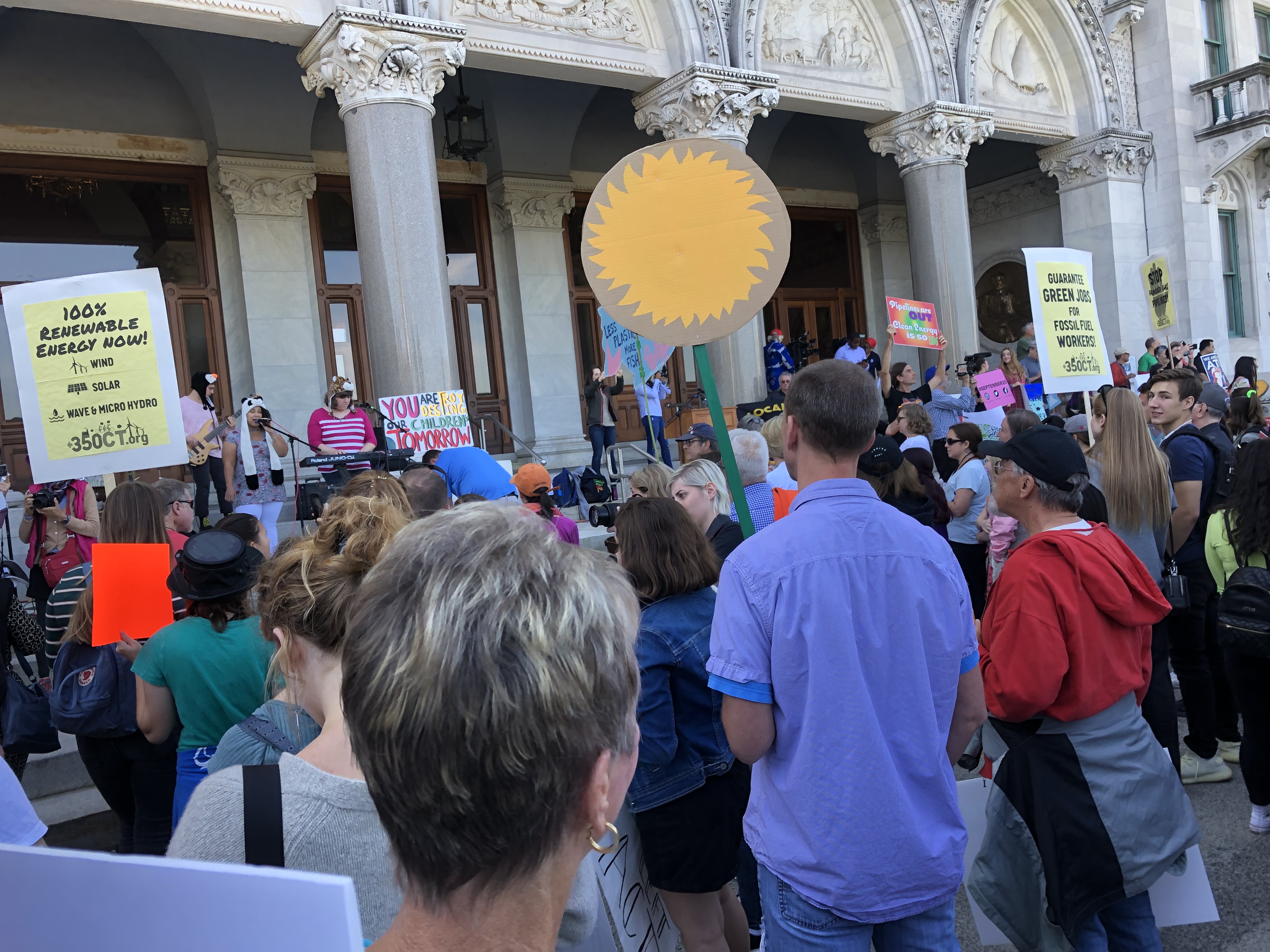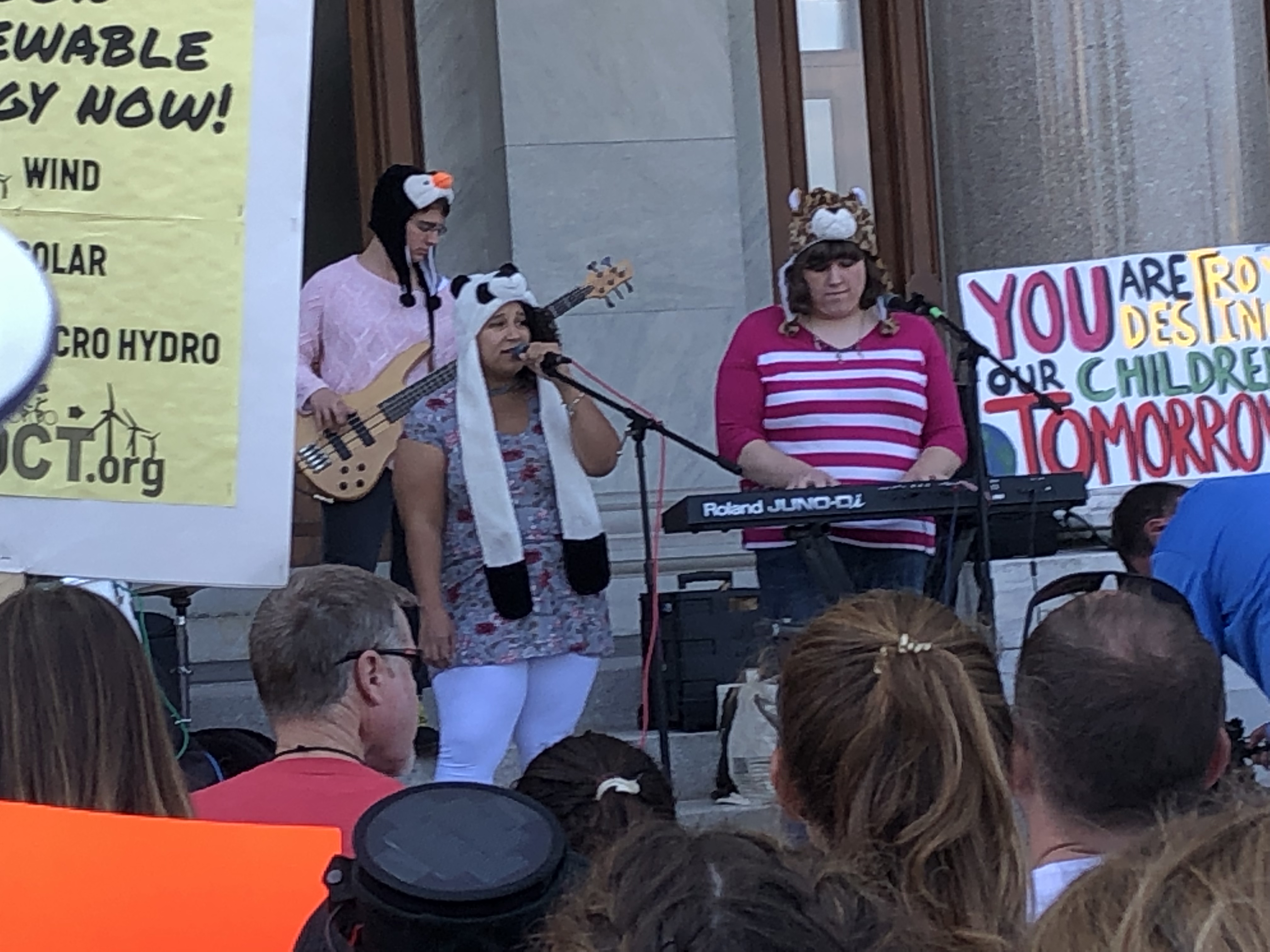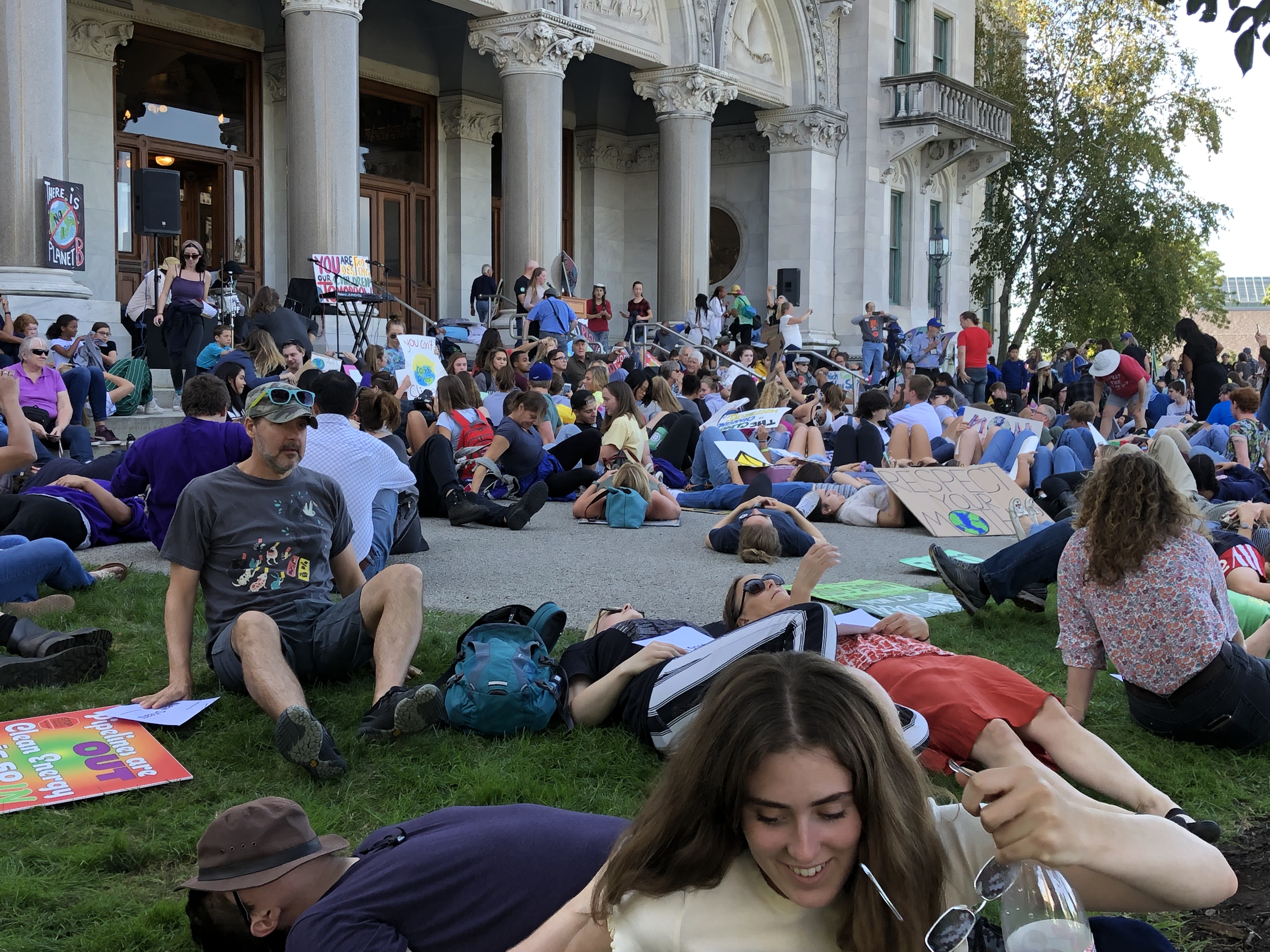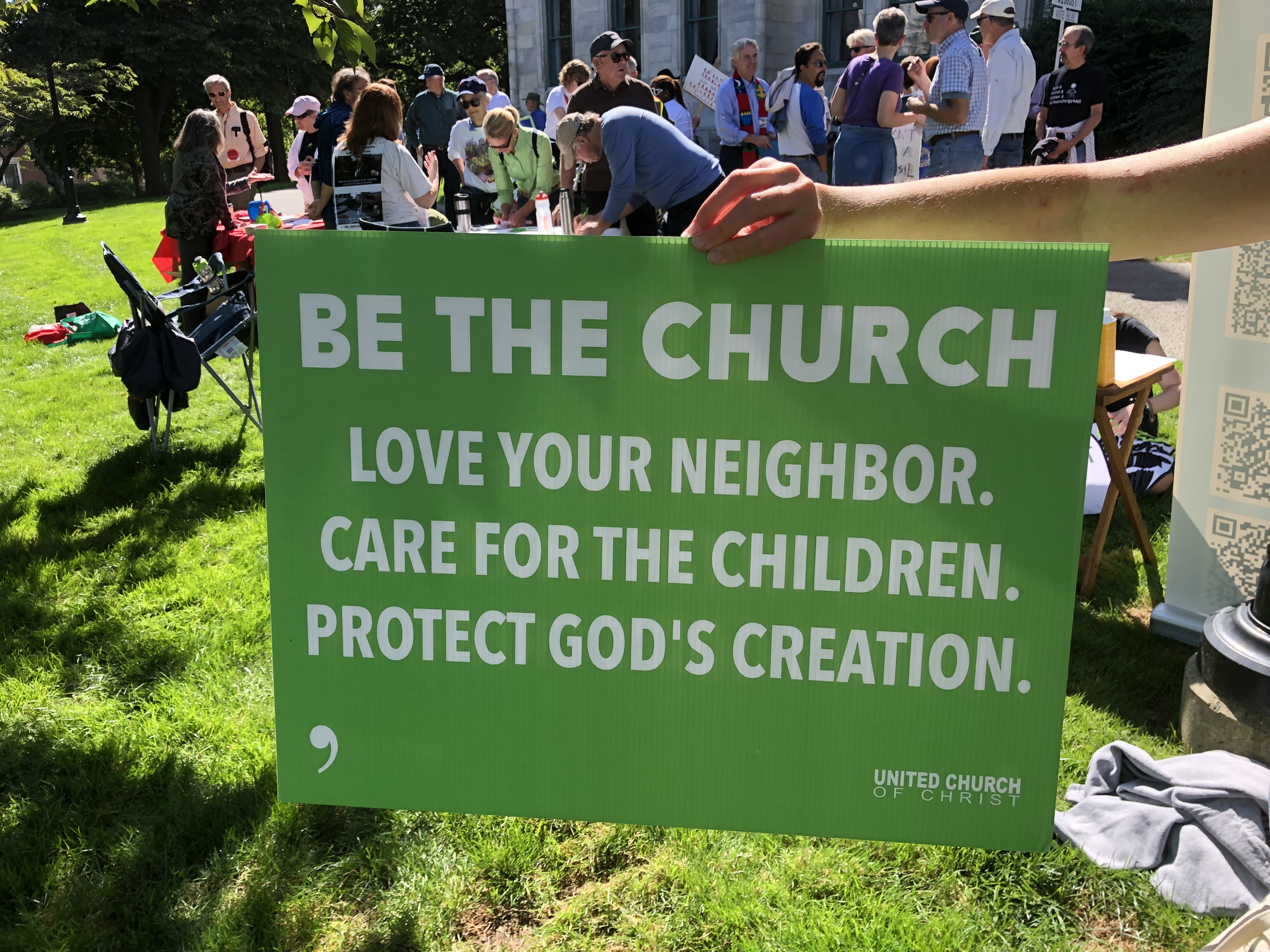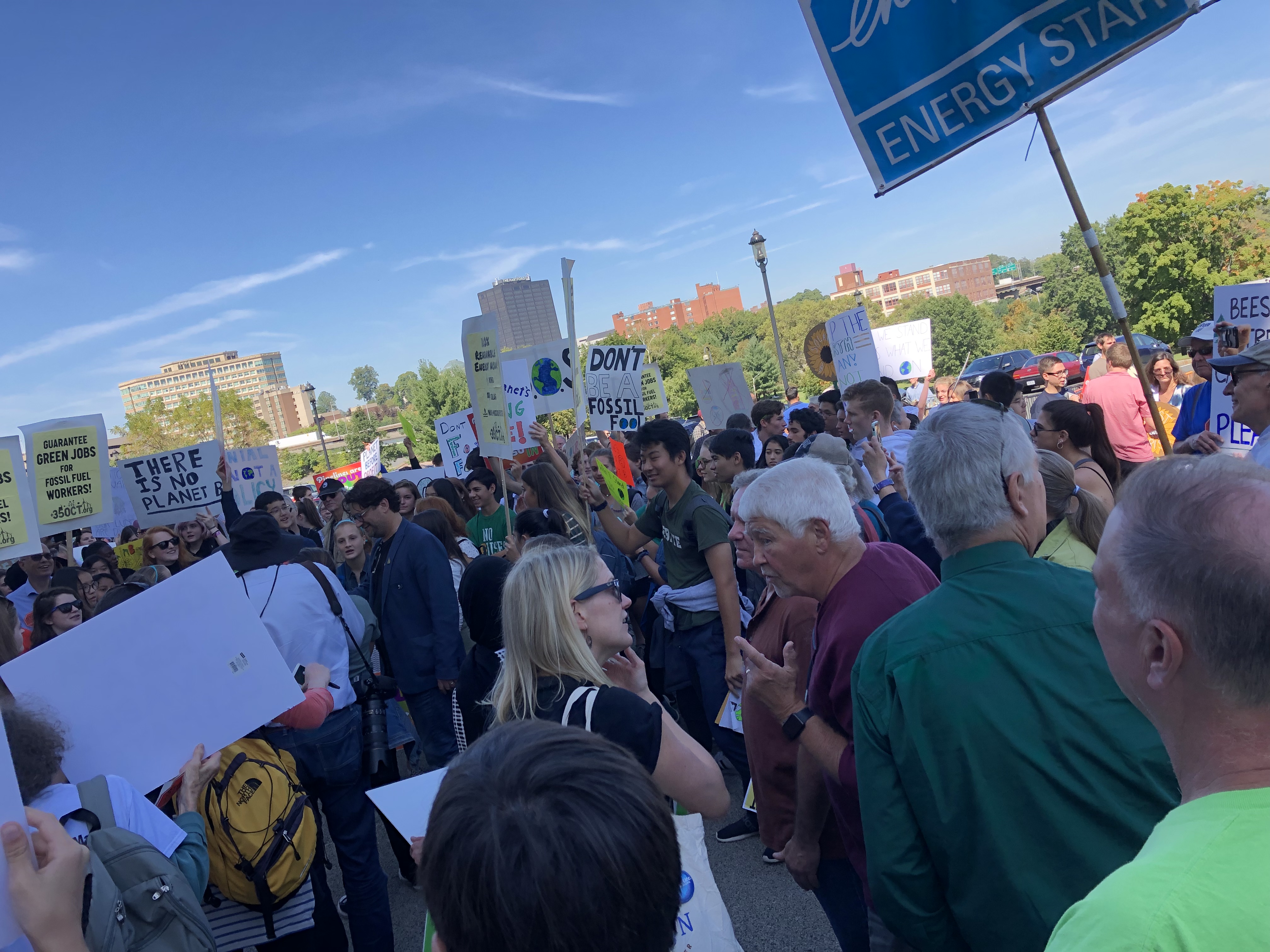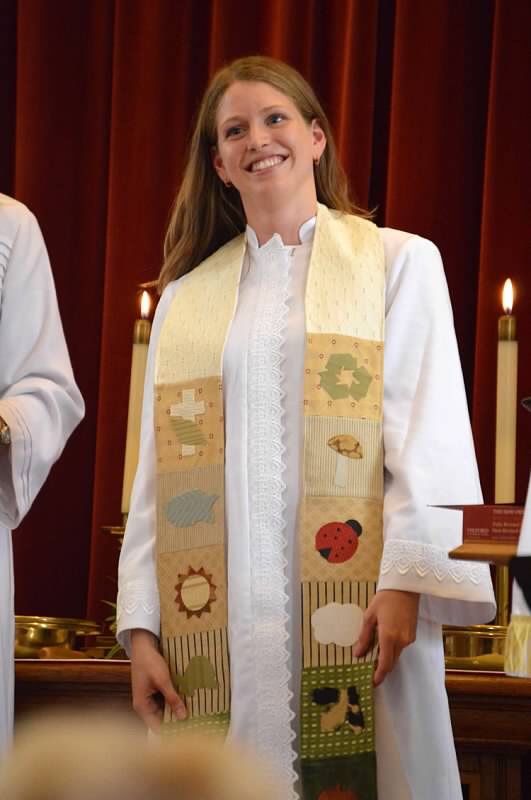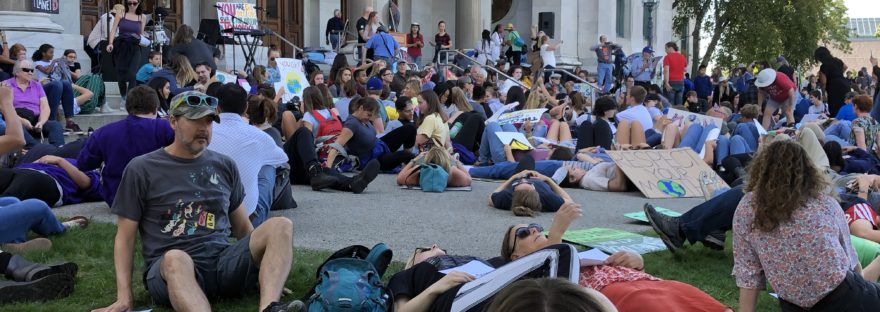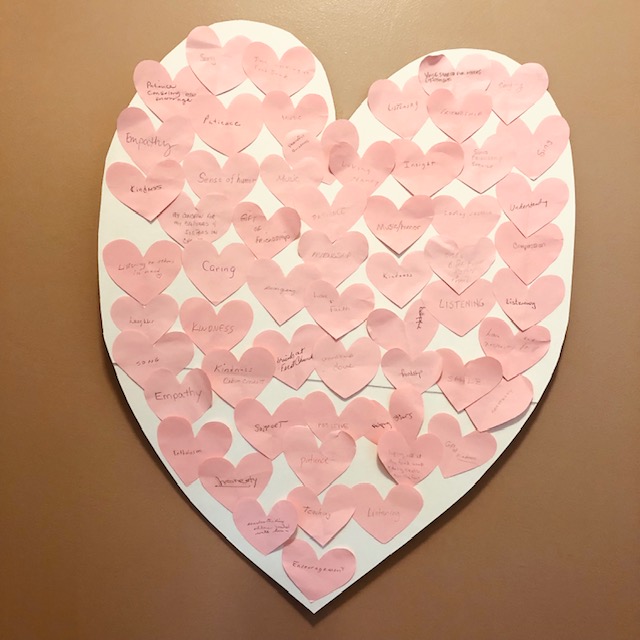When I ask people their favorite part of worship, 50% of the time they say it’s the music.
The other 50% say the sermon.
Some will say the prayers of the people.
No one ever says confession.
Today I propose the beauty and power of this ancient practice.
Prayer
It’s been a joy working with our new members – they are thoughtful people! During our new members class,
we spent a good amount of time discussing one line of the UCC Statement of Faith:
“You (God) seek in holy love to save all people from aimlessness and sin.”
We talked about how hard it is to admit that we might need “saving”.
In our “pull yourself up from your bootstraps” culture,
To acknowledge we need help can be taboo.
Yet, one person noted that our world is filled with aimlessness and sin.
Our world does need help, but more than just help – saving.
Saving implies that the one in need is really in need.
If you help someone out of the pool, you offer a hand to balance on as they climb out.
If you save someone from a pool, you jump in and pull them out.
To admit that we need saving means we admit that we are utterly unable to do it on our own.
When people are recovering from surgery or amid illness,
One of the greatest spiritual challenges is giving up one’s independence
And relying on others.
Many of us struggle to lean on anyone other than ourselves.
To be vulnerable in any way is scary.
So we insist on taking care of ourselves, even when we need help.
We refuse to reach out, even though we are faltering.
We hold tight to secrets or shame, fearful of what will happen if we are really honest.
We do not particularly like to acknowledge our faults or share our vulnerabilities.
Yet, our tradition and ancestors in faith have insisted on the practice of confession and vulnerability for centuries. Today’s scripture is one of seven core penitential psalms, often read during the season of Lent. The psalmist shares how avoiding confession harms body, mind and spirit. The author then points to the benefits of practicing honest confession.
The Message version uses modern language to allow the meaning of the psalm to shine through.
Psalm 32
The psalmist explains what it was like to hold in a secret, to refuse confession, to hide one’s self:
“When I kept it all inside,
my bones turned to powder,
my words became daylong groans. The pressure never let up;
all the juices of my life dried up.” In the NRSV:
“While I kept silence, my body wasted away through my groaning all day long. For day and night your hand was heavy upon me; my strength was dried up as by the heat of summer.”
To keep silence, to hold back, to refuse to be vulnerable and share honestly – It takes a toll on our bodies, our minds, and our spirits.
Shame keeps people trapped.
On Tuesday evening the EHPD hosted a Sex Trafficking Seminar
It was a heart wrenching seminar about the many ways predators manipulate, coerce, or force people, often teenage girls, to have sex for money.
67% of girls in “the life” live at home with their parents.
Human trafficking happens everywhere, across economic, social and racial lines.
A major factor keeping people in “the life” is shame.
Their trafficker blackmails the victim with shame.
When the victim begins to realize what they are doing and realize they don’t want to be doing it, shame keeps them from telling their parents, or law enforcement.
EHPD arrested a girl 8 times for prostitution. Each time she lied about her age and name. She was too ashamed to tell anyone what was really happening and who she really was.
Shame is the fear of disconnection. If I tell someone, they won’t believe me or will think poorly of me or will distance themselves from me.
Shame traps people in an invisible cage of isolation.
Holding secrets can tear us apart.
In the case of human trafficking, the physical, emotional and mental trauma leaves lasting scars.
Scientific studies back up the ancient words of the psalmist:
Secrets, hiding ourselves, shame take a physical toll on our bodies.
More specifically, if there is a secret we are constantly thinking about,
The efforts of concealing it release stress hormones into our bodies,
Keeping a secret breeds anxiety, fear, and depression.
Read more here: https://www.theatlantic.com/health/archive/2017/05/shhhhh/526581/
Here is the thing: We each have a shadow side.
If you don’t think you have a shadow side, consider people or situations you think poorly of.
Not always, but often, our shadow side can be found when we are busy judging others:
(Ex. Nagging CJ to do a tax thing until I realized I hadn’t done my part.)
When you find yourself overly critical of another,
take a good look at yourself in that regard and you may find something worth confessing.
We each have a shadow side.
To ignore it or silence it simply denies God’s grace.
God desires to love us.
Grace is God forgiving us and loving us, shadows included.
When we are too afraid to be honest, to share our vulnerabilities, we are rejecting God’s grace.
As one theologian said, “Silence is the rejection of grace.” James Mays (Psalms 147)
Quite simply, we cannot feel God’s forgiveness if we refuse to name our faults.
And so the psalmist proclaims: (Message Version)
“Then I let it all out;
I said, “I’ll make a clean breast of my failures to God.”
Suddenly the pressure was gone—
my guilt dissolved, my sin disappeared.
These things add up.
Every one of us needs to pray; when all hell breaks loose and the dam bursts we’ll be on high ground, untouched.
God’s my island hideaway,
keeps danger far from the shore, throws garlands of hosannas around my neck.
[for NRSV v1-2]
“Happy are those whose transgression is forgiven, whose sin is covered.
Happy are those to whom the Lord imputes no iniquity, and in whose spirit there is no deceit.”
When we find the courage to be honest, to share vulnerabilities,
Pressure is gone. We are happy. There is freedom and joy.
Shasta Nelson in her book on friendship names the importance of sharing vulnerabilities with friends.
Friendships grow deeper with vulnerability.
We crave being known and loved – we want committed friends.
We don’t just want contact friends – as nice as they are.
In order to be known and loved, we must take the risk to be known.
This does not mean you should go up to a stranger and tell them your deepest darkest secrets. Not every friend needs to know everything about you.
We have different circles of friends for different reasons and they are all important.
Often what brings a friendship from a contact or common friend into a community or committed friend, Is the extent to which we are vulnerable with one another.
Vulnerability is required at each step:
We must be vulnerable enough to initiate a conversation. This begins a contact friendship.
We must be vulnerable enough to ask a potential friend on a friend-date. This begins a common friendship.
We must be vulnerable enough to share a challenge. This can deepen a community friendship.
We must be vulnerable enough to share our doubts and fears. This strengthens a committed friendship.
Vulnerability is a gradual thing that grows with trust.
Shasta Nelson gives some helpful tips on how to be vulnerable in a way that nurtures friendship.
When sharing vulnerabilities with friends, mutually is key.
If one person is sharing intimate details while the other is chatting about the weather – The imbalance is going to bred resentment.
If only one party is sharing, then it isn’t a friendship.
We can be vulnerable with doctors or therapists, but those are not mutual friendships.
If only one person is doing all the talking, then it’s probably not an honest friendship.
Friends “share the spotlight” – both people share what is happening,
Which means one might share the pain of a break-up,
But the other has time to share about their new cat as well.
Friendship is a mutual two-way street.
When sharing vulnerabilities with friends,
Shasta reminds us that gratitude and positivity are key.
If every time we call a friend we grip, complain, and confess all our shadow parts,
On a practical level, the friend is going to eventually get exhausted. On a spiritual level, we miss out on the goodness God created us with. We do have shadow parts, but we also have bright parts.
God formed us and called us good. Beloved.
So when sharing vulnerabilities, it is not about putting ourselves down,
It’s about being honest about our shadow and our light.
When we are honest about our whole selves, we give others the opportunity to love our whole selves.
If we only or mostly share our shadows and our struggles, we ignore God’s goodness.
If we only share the bright spots, we will never know if we can be loved in our shadow.
We have got to be honest to be honestly loved.
So may we share the positive and the shadow, gradually, as the relationship grows.
In doing so may our relationships become deeper and we experience grace beyond measure.
May we trust that we are enough;
God made us and formed us and called us good.
May we be faithful enough to be honest about who we are, That we might be honestly loved. Amen
